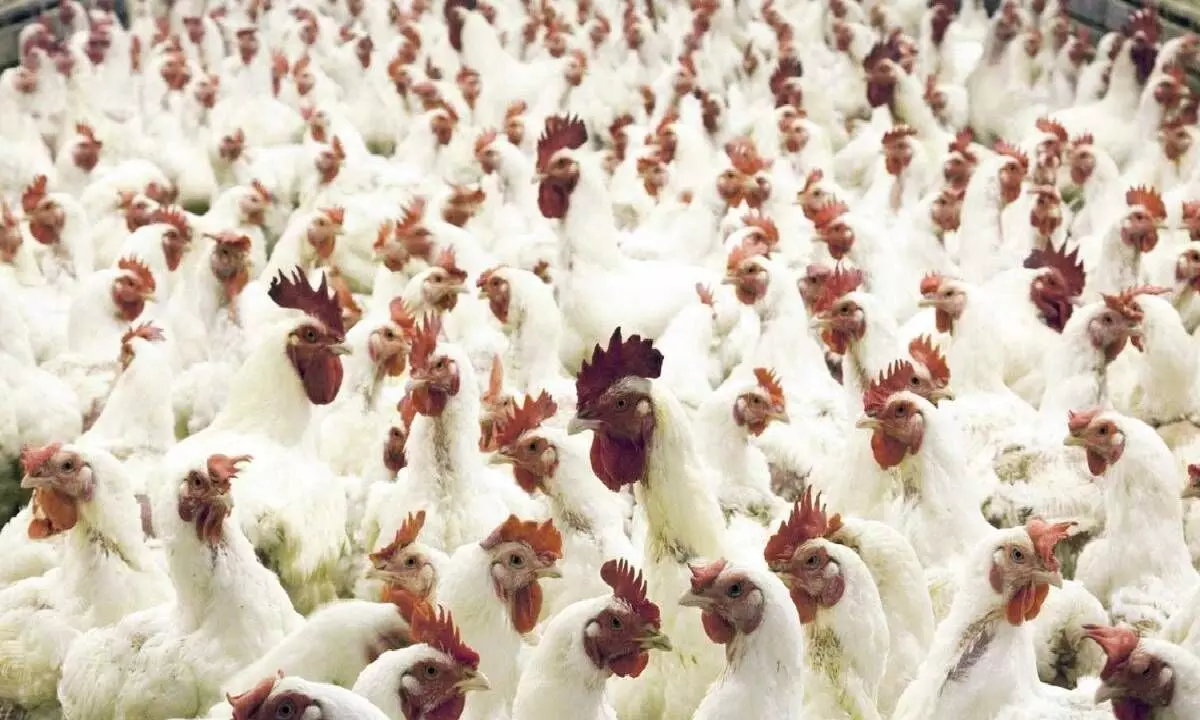Centre urges states to monitor bird flu daily
The Central government has instructed states to report daily on control measures to check Highly Pathogenic Avian Influenza (HPAI), with increased surveillance and preparedness, especially during winter when migratory birds pose a higher risk
image for illustrative purpose

The Central government has instructed states to report daily on control measures to check Highly Pathogenic Avian Influenza (HPAI), with increased surveillance and preparedness, especially during winter when migratory birds pose a higher risk.
The Department of Animal Husbandry & Dairying (DAHD), under the Union Ministry of Fisheries, Animal Husbandry and Dairying, has also directed all poultry farms to register with state animal husbandry departments within a month. In a bid to check avian influenza (bird flu), the government has urged poultry industry stakeholders to ensure 100 per cent compliance with this directive, an official press release said.
The government has implemented other initiatives to control and prevent the spread of HPAI in India. The country follows a strict ‘detect and culling’ policy, which involves culling infected birds, restricting movement, and disinfecting areas within a 1 km radius of outbreaks.
Surveillance for HPAI has also been expanded to non-poultry species, with negative results from tested cattle, goats, and pigs. In the global effort to combat potential pandemics, India has shared sequencing data of H5N1 isolates and related samples with international networks.
Central teams, along with the National Joint Outbreak Response Team, are being deployed to manage outbreaks. Regular coordination meetings are being held with state animal husbandry departments and other relevant authorities, including the health and wildlife departments.
India follows a test-and-cull policy to contain avian influenza outbreaks. Under the Livestock Health and Disease Control Scheme, the government compensates affected farmers for culled birds, destroyed eggs, and feed, with costs shared 50:50 between the Centre and States.
Government officials met industry representatives and experts last week to discuss the issue. Representatives from the poultry industry urged the government to explore vaccination as a strategy to prevent further economic losses in the sector.
Scientific experts highlighted that currently available HPAI vaccines do not provide sterile immunity but only reduce virus shedding. Given these complexities, it was agreed that further scientific evaluation is needed before making a policy decision.
The meeting recommended conducting detailed science-based assessments to determine the feasibility of HPAI vaccination in India. Research efforts have also been initiated to develop an indigenous HPAI vaccine following global best practices.

